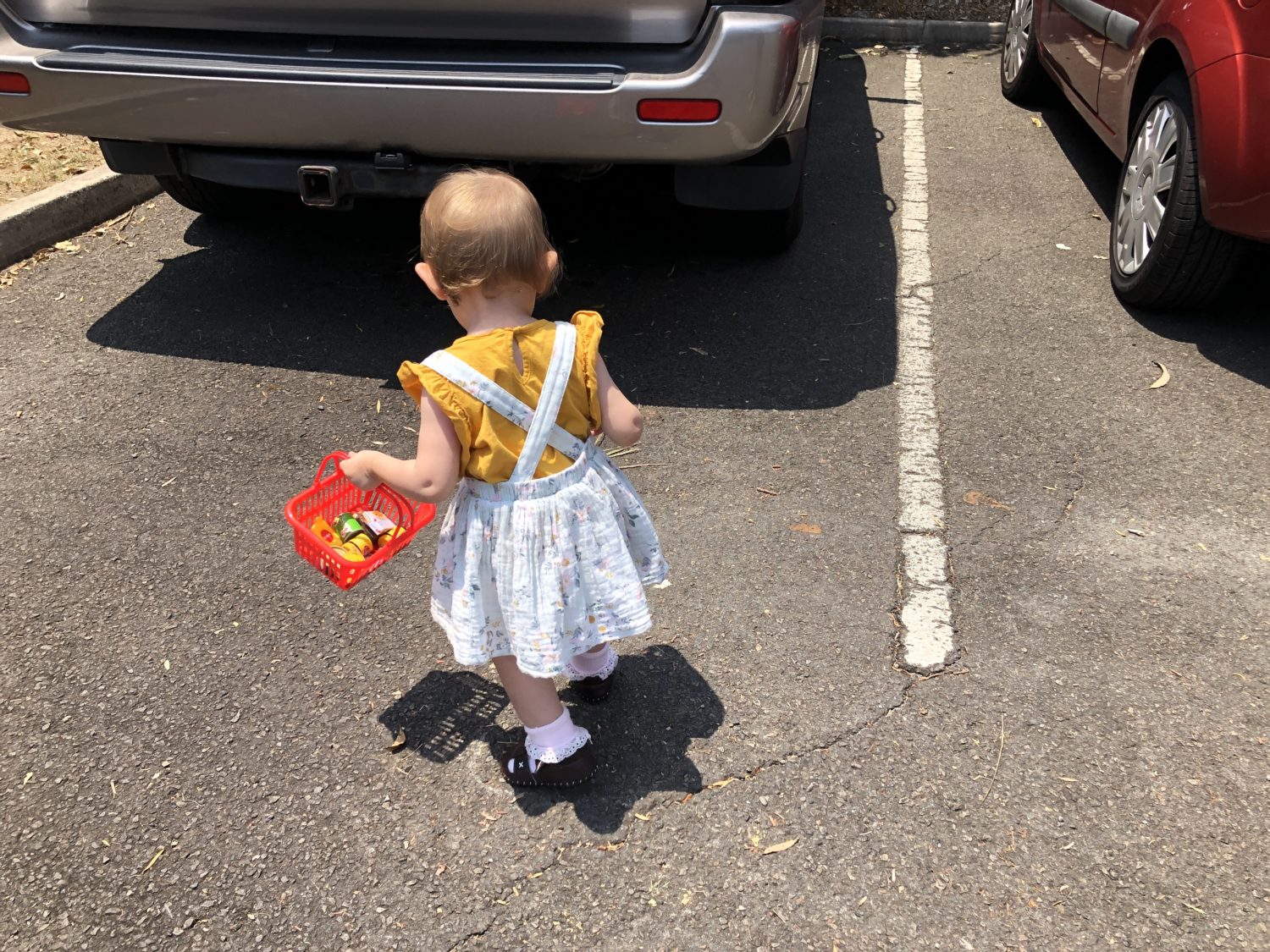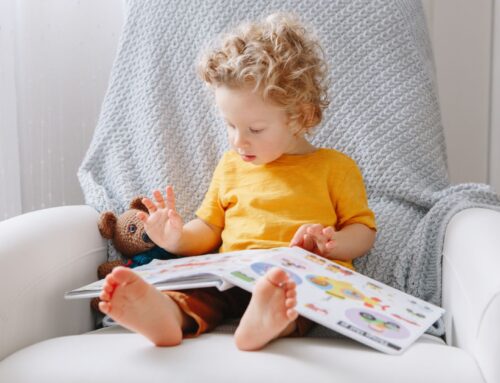As a stay at home mum with a 9-month-old daughter, going grocery shopping by myself has become a real treat! However, as an early childhood teacher I know that daily life provides some of the best learning and development opportunities for our children, even something as simple as doing the grocery shopping.
Shopping together can be a positive experience and prompts us to start conversations about food, numeracy, and literacy. There are also plenty of opportunities for our children to work on their social skills. Involving children in the whole process from making a list, to choosing the food, paying at the checkout, and unpacking can make it a very rewarding experience.
Below are some simple and practical tips for encouraging children’s development when shopping together. Think about their stage of development and interests then choose what works best for you. Here are some ideas to get you started.
Food Knowledge
Shopping together is a great way to promote our children’s health. Use the time to talk about healthy food and sometimes food. Make sure your trolley is full of nutritious choices and choose a few special treats together.
Involve children in choices where possible, if our children get to pick the dinner veggies they will be more likely to eat them!
If you have a child who is cautious about trying new foods let them choose something they are familiar with and something new that they would like to try.
A toddler or Kindy child can look around and find items for you. As you put food in the trolley you can talk about it, where does it come from, how did it get to the shops?
Once we have chosen an item, our children can hold them or help put them in the trolley.
Literacy
Shopping is a literacy-rich activity. There are shopping lists, the signs in the shops and names of the products that you can discuss.
Before you leave home, demonstrate the use of print and different types of texts. Look through the grocery catalogue together and circle or cut out things that you need.
Model writing by making a shopping list, a Kindy child could copy your writing or draw pictures of what you need. A toddler can stick pictures from the catalogue or watch you write the list.
In the shops point out signs and read these to your children. Look at the aisle signs, point out categories to your child, look at sale signs and read the names of different products.
Talk about the names of food and develop vocabulary. I talk to my baby and tell her each item we are putting in our trolley. “Let’s get some bananas for daddy” “Here is watermelon, your favourite!”. For toddlers you can use more descriptive words, “Let’s get the yellow bananas, these ones are ripe”. For a Kindy child you can ask them to describe things to you “Let’s get bananas, what can you tell me about bananas?”
Brands are a great way for children to develop early reading skills. Even young children can ‘read’ the name of the supermarket and their favourite brands buy recognising the logos and colours.
Numeracy
There are a lot of numbers at the shops! As well as opportunities to explore other mathematical concepts such as money, measuring and counting.
Develop counting and one-to-one correspondence while shopping. Ask your Kindy child to pick out 4 bananas, help them count each banana as they place it in the bag.
Let your toddler hold the bag while put apples in to develop spatial awareness, talk about how the apples are on the shelf and then in bag.
Explain that you are picking up a full milk because the milk at home is empty to talk about volume and comparison.
Talk about number names and numerals. If your child is 3 years old have them look for aisle 3 and for any prices with number 3 in them.
Discuss money, a Kindy child might be able to tell which items more expensive and which ones are cheaper.
Pay with cash if possible! Otherwise talk to your children about how you use your card and where the money comes from. Money is a challenging and abstract concept so exposing our children regularly at a young age helps lay down the neural pathways need in school.
When you get home carry the shopping in, let your child carry a light bag, while you carry the heavy bag, talk about mass and measurement.
Social Development
Any time that we are out in public with our children we are working on their social skills.
There are lots of people (and trolleys!) in the shops. Things is a great chance for our kids to practice awareness of their surroundings (particularly not walking into people).
Waiting in line is a learned skill and one that your child’s teacher will appreciate them knowing once they get to school!
Encourage your children to greet and thank the checkout operator, this helps build manners and social skills.
Any shared activity builds connection and strengthens relationships, even grocery shopping together. My little girl loves sitting up in the trolley and being able to chatter away to me (and smile at strangers!)

Know your limits and be prepared
Don’t take hungry or tired children shopping! Know when to say no. I’ve had many times where my baby has survived the shopping trip but screamed in the car on the way home because she is overtired.
Chose a quiet time of day, less stress for everyone.
Don’t go if you are feeling stressed or overwhelmed (try online shopping with click and collect or delivery!)
Make a plan before you leave the house and communicate it to your children. Will you be buying treats? How long you will be gone? If you’ve got multiple jobs to do see you if can break it up. Most of my local shopping centres have created a children’s play area and many run activities during school holidays.
If grocery shopping is something that you need to do regularly with your children create a positive routine. First, we do the groceries – then, we go to the park.
Make it fun! Race a timer to see how quickly you can do a shop. If both parents are there split the list and see who gets to the checkout first.
Play eye spy or have a scavenger hunt!
I hope that these ideas help you to make grocery shopping a positive family experience. For our little ones some of their best learning happens in the everyday moments.










